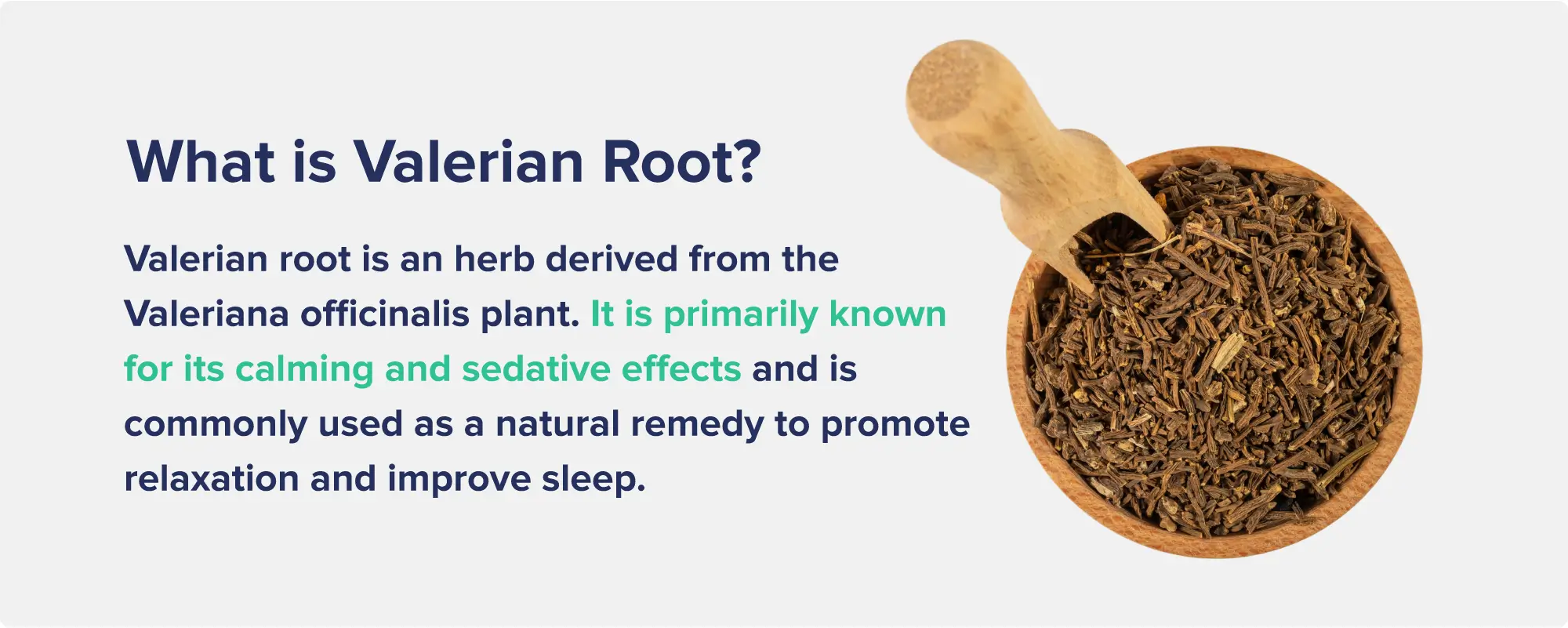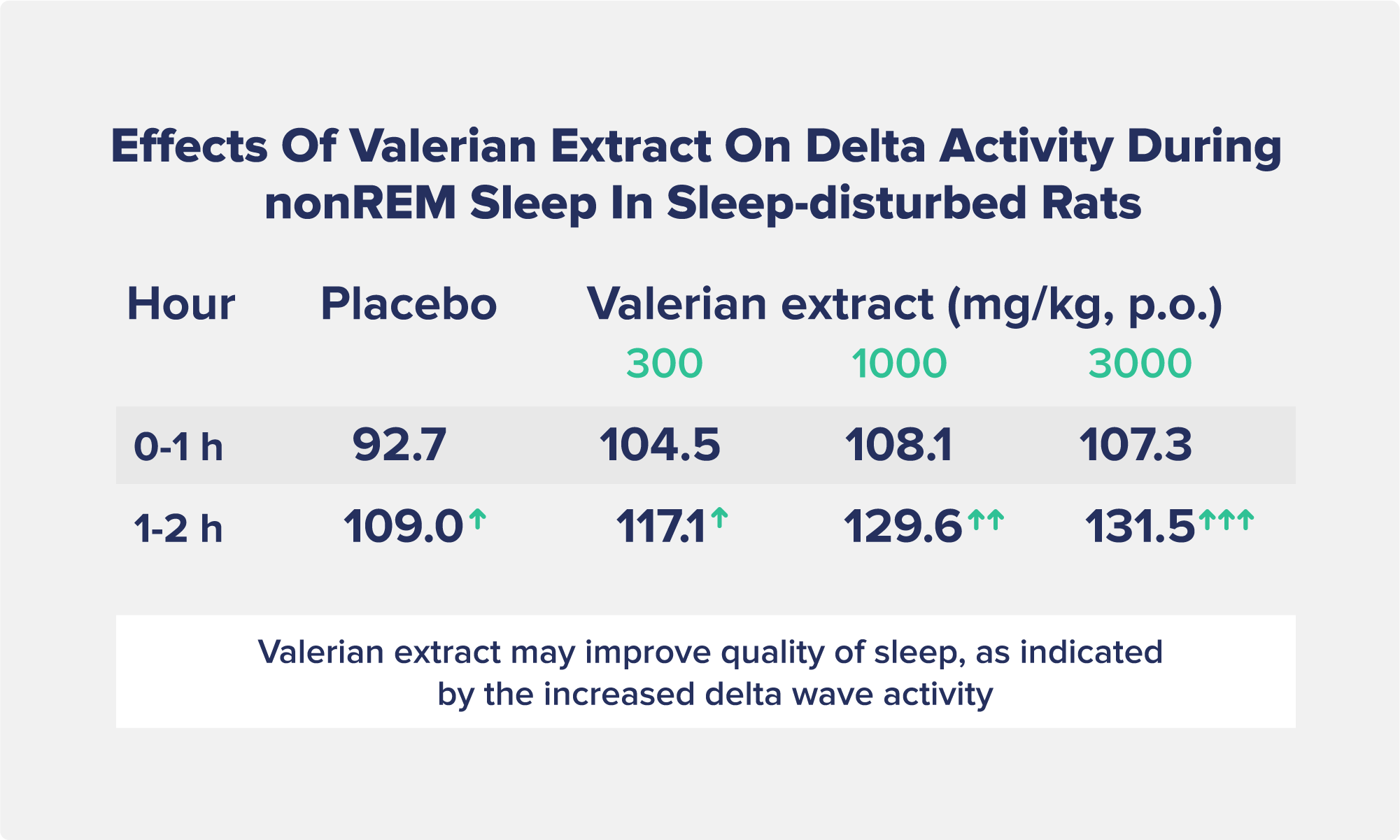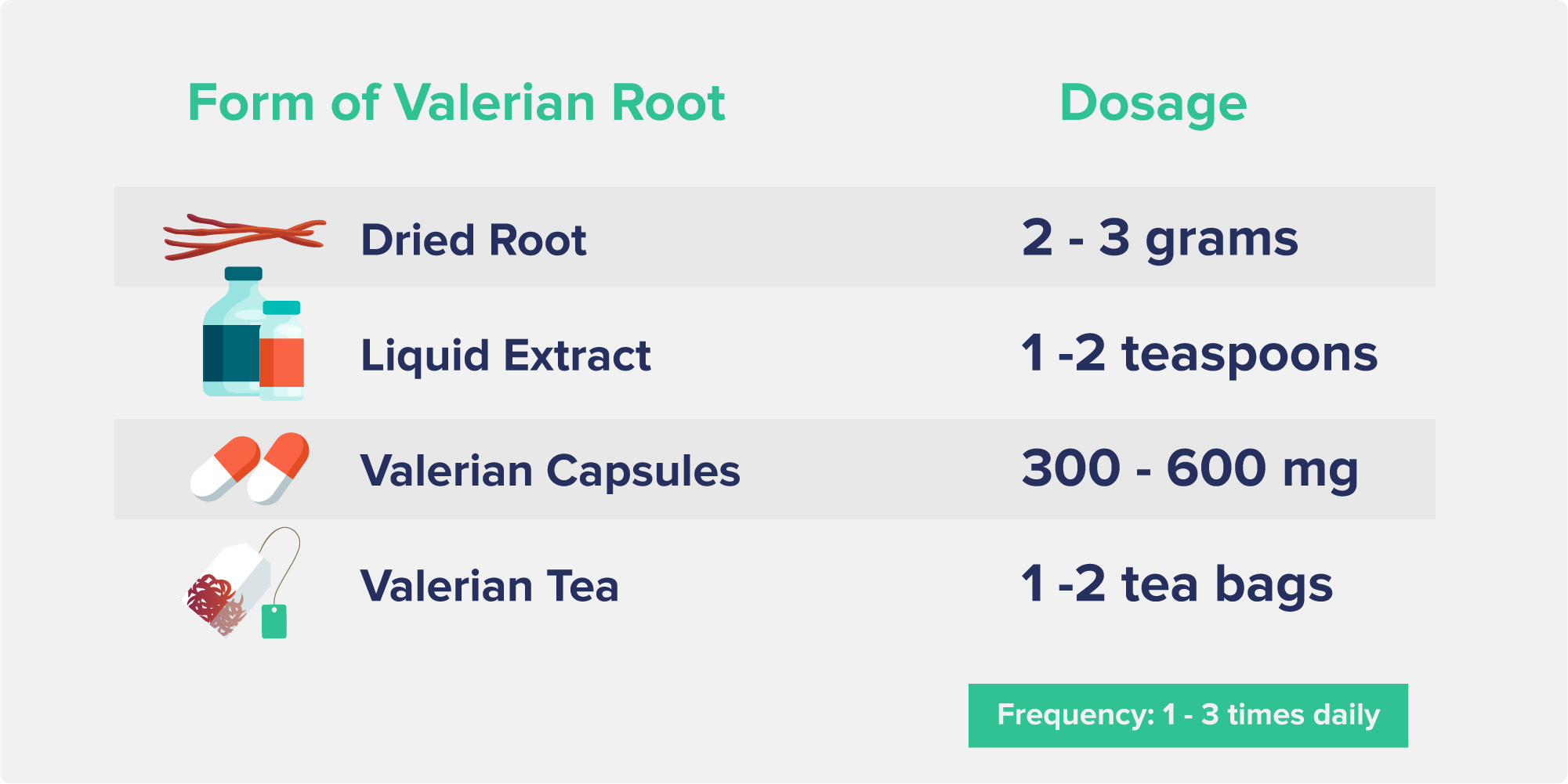Try our favorite, clean protein powder: See our top pick →
Try our favorite, clean protein powder: See our top pick →
This post contains links through which we may earn a small commission should you make a purchase from a brand. This in no way affects our ability to objectively critique the products and brands we review.
Evidence Based Research To fulfill our commitment to bringing our audience accurate and insightful content, our expert writers and medical reviewers rely on carefully curated research.
Read Our Editorial Policy
Valerian root is an herb that has been used by mankind for millennia, and it exerts several balancing effects on sleep hormones.
The majority of herbal sleep aids under objective scrutiny have been proven safe and non-addictive; that’s not the hard part when it comes to making it through the vetting process and into common use.
Rather, it’s a lack of potency that sees the filtering out of many would-be candidates from all remote corners of the globe.
As the evidence stands, valerian root has appeared to satisfy both of these criteria, and over-the-counter, valerian-based sleep aids have already been circulating for years now.
What’s so special about valerian root for sleep, and how can the everyday consumer take advantage?
Valerian root is a common ingredient sold in dietary supplements. Proponents claim it cures insomnia and nervous tension caused by anxiety.

Like cannabis, the name valerian actually denotes a genus (Valeriana), under which there are upwards of 250 species.
This plant originally hails from Europe and Asia, and can grow up to five feet at the peak of its season, during which plumes of small, white and pink flowers are observed atop slender stalks.
The ancient Greeks and Romans used valerian for insomnia millennia ago, and it has been referenced in the written record of many cultural traditions since then as a sleep aid, stress-fighting remedy, and even an envious elf deterrent (never change, Sweden).
The species of valerian most commonly used today is Valeriana Officinalis, and with the exception of one or two arcane uses connected to outmoded religious practices, its uses as a sleep, stress, mood, and fatigue aid have not changed.
The research is ongoing, but at this point, the sleep aid role is valerian’s strongest and most consistently evidenced one, as in this study from the ANARDI Medical and Scientific Association of Scafati, Italy.
The authors found that valerian and two other herbs in a compound consistently lowered “time of sleep onset” in subjects experiencing primary insomnia (with no medical or psychiatric involvement).
That’s a start, but how does this work exactly, and what else might valerian be able to do?
The mechanism by which valerian enhances sleep quality is still very much unexplored, but its interactions with GABA receptors may be largely responsible.
GABA receptors are specialized proteins in the brain that respond to a chemical messenger called gamma-aminobutyric acid (GABA).
When stimulated, these receptors have inhibitory effects on several processes in the brain that contribute to anxiety; GABA receptors promote a sense of calm that helps with sleep.
This trial out of a research group in Magdeburg, Germany found that valerenic acid, a compound in valerian root, interacts with GABA receptors in a way that “induced an anxiolytic activity” in mice experiencing situational anxiety.
In other words, valerian can facilitate GABA receptor function to promote calmness and possibly hasten sleep onset.
Other studies have commented on valerian’s ability to impact multiple metrics of sleep quality, oftentimes varying by dosage, demographic, and other factors.
One particular finding out of Okayama University in Japan yielded interesting results after dosing sleep-disturbed rats with 1000mg or 3000mg of valerian extract.
In this case, the herbal extract reduced sleep onset time and increased “delta activity,” which refers to a type of brain wave that is usually emitted in deeper stages of sleep.

In other words, even though most studies don’t support the claim that valerian can prolong sleep, it may improve quality of sleep (in addition to getting you to sleep faster).
To this day, serotonin and its nuanced connections to anxiety, depression, and sleep are still being hotly debated over, but few are taking the stance that there are no connections at all.
However serotonin affects sleep, valerian can modify this connection, says an in vitro study from the University of Illinois in Chicago.
After authors tested the action of valerian extracts at a wide variety of receptors, they determined that “chemical components of … valerian extract function as an agonist of the human 5-HT5A (serotonin) receptors.”
Granted, the 5-HT5A is one of the least understood serotonin receptors, and serotonin can both hinder and help sleep depending on the context, so there are a whole lot of “ifs” that need to be resolved in order to consider this connection a sleep-promoting one.
To clarify, the research is not suggesting that valerian will help you recover from a night of debaucherous diversion, but rather, that it will not cause a “hangover” itself.
This systematic review out of UCSF determined after a survey of 370 articles and 1093 patients that “Valerian may be a more attractive option than other sleeping agents because of the lack of hangover effect. Of the six studies that reported a measure of ‘morning feeling,’ all reported no difference between valerian and placebo.”
Considering how functionally limiting prescription and even some over-the-counter sleep aids can be, the ability of valerian to gently tiptoe its way out of your system may make the difference between finding a supplement with staying power and trudging your way through a rotating range of knockout syrup.
An official daily dosage or adequate intake value for valerian root has not been established, but two important trends in the research will help us to at least approximate effective ranges and identify unsafe levels.
Even high doses of 1000mg/day+ have been linked with very few adverse effects in studies, and when they do occur, they’re relatively minor, like nausea, diarrhea, fatigue, etc.
Studies reporting positive outcomes tend to waver around the 300-600mg/day range.
In other words, doses around 500mg/day may be the most effective, and high doses of 1000mg/day+ are unlikely to significantly worsen side effects.

This remotely sourced herb is too specialized for use in everyday food items, so supplementation is the best way to reach adequate amounts on a consistent basis
Solaray Valerian Root is among our favorite options for several important reasons.
First, in addition to valerian extract, this supplement contains sleep-bosting chamomile, chaste tree, dong quai, and black cohosh extracts, as well as a host of supporting vitamins and minerals.
It’s very gentle, safe, and non-addictive, keeping to form with valerian itself.
Finally, the Internal Harmony Beauty Sleep Aid facilitates improvements in sleep using melatonin, serotonin booster 5-HTP, and of course, the valerian route pathway.
Thanks to supplements like this and continued research into natural sleep aids, the landscape is smoothing out for the sleep-disturbed in search of safe and sustainable support.
Subscribe now and never miss anything about the topics important to you and your health.